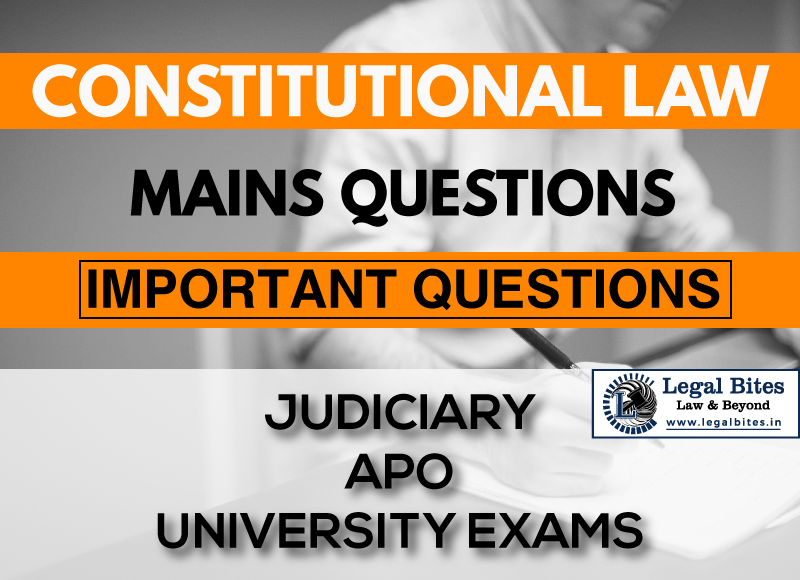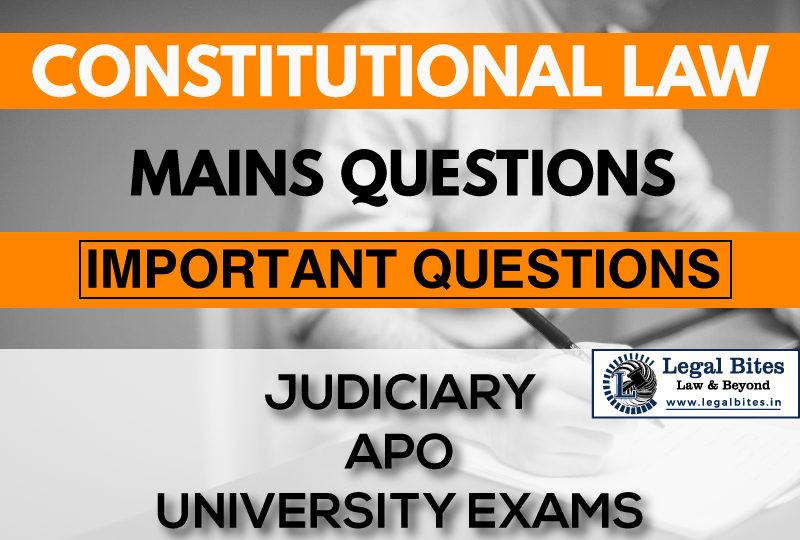
Question 1: Write a short note on Preamble to the Constitution of India. [BJS 2000; BJS 2006, MPJS 2012]
Find the answer to the mains question only on Legal Bites. [Write a short note on Preamble to the Constitution of India.]
Answer
The Preamble to an Act sets out the main objectives with the legislation it is intended to achieve. It is a sort of introduction to the statute and many times very helpful to understand the policy and legislative intent it expresses. The framers of our Indian Constitution gave to the Preamble ‘the place of pride’ as it embodies the ideals which the founding fathers of the Indian Constitution desired to achieve by the citizen, in their best interest. According to the Supreme Court, the Preamble to the constitution is a key to open the mind of the makers and shows the general purpose for which they made the several provisions in the constitution.
The Preamble to the Constitution of India spells out its authority, i.e. ‘People of India’ and expresses the social and political philosophy of India with the nation’s concept of Social Justice in its widest term.
WE, THE PEOPLE OF INDIA,
having solemnly resolved to constitute India
into a SOVEREIGN SOCIALIST SECULAR DEMOCRATIC
REPUBLIC and to secure to all its citizens:
JUSTICE, social, economic and political;
LIBERTY of thought, expression, belief, faith and worship;
EQUALITY of status and of opportunity;
and to promote among them all
FRATERNITY assuring the dignity of the individual and
the unity and integrity of the Nation;
IN OUR CONSTITUENT ASSEMBLY this 26th day of
November, 1949, do HEREBY ADOPT, ENACT AND GIVE
TO OURSELVES THIS CONSTITUTION
Its essential purpose is:
- It indicates the source from which the Constitution comes, viz. The People of India.
- It contains the enacting clause which brings into force the constitution.
- It declared the great rights and freedoms which the people of India intended to secure to all citizens and the basic type of government and polity which was to be established.
The Preamble of the Indian Constitution declares India to be a Sovereign, Socialist, Secular, Democratic, Republic. The following are the objectives enshrined in the Preamble:
- Justice: Social, Economic and Political;
- Liberty: Of thought, expression, belief, faith, and worship;
- Equality: Of status and of opportunity; and to promote among them all;
- Fraternity: Assuring the dignity of the individual and the unity and integrity of the Nation.
Preamble is a part of the constitution and amendable under Article 368. The question whether the preamble is a part of the constitution was first discussed in the Re Berubari’s (1960) case where the Supreme Court held that the Preamble was not a part of the Constitution and therefore it could never be regarded as a source of any substantive powers.
The court said that our preamble has a limited application and it can be restored to cases where there is any ambiguity in the statute. If the terms used in the constitution are ambiguous or capable of two meanings interpreting them some assistance may be taken from the objectives enshrined in the constitution and construction with fits the Preamble may be preferred.
However, in Kesavananda Bharti (1973) case, the Supreme Court rejected the above view and laid down the following prepositions:
- That the Preamble to the Indian Constitution is a part of the Constitution.
- That the preamble is not a source of power nor a source of limitations or prohibitions; and
- The preamble has a significant role to play in the interpretation of statutes, and also in the interpretation of the provisions of the constitution.
Important Mains Questions Series for Judiciary, APO & University Exams
- Constitutional Law Mains Questions Series Part-I
- Constitutional Law Mains Questions Series Part-II
- Constitutional Law Mains Questions Series Part-III
- Constitutional Law Mains Questions Series Part-IV
- Constitutional Law Mains Questions Series Part-V
- Constitutional Law Mains Questions Series Part-VI
- Constitutional Law Mains Questions Series Part-VII
- Constitutional Law Mains Questions Series Part-VIII
- Constitutional Law Mains Questions Series Part-IX
- Constitutional Law Mains Questions Series Part-X
